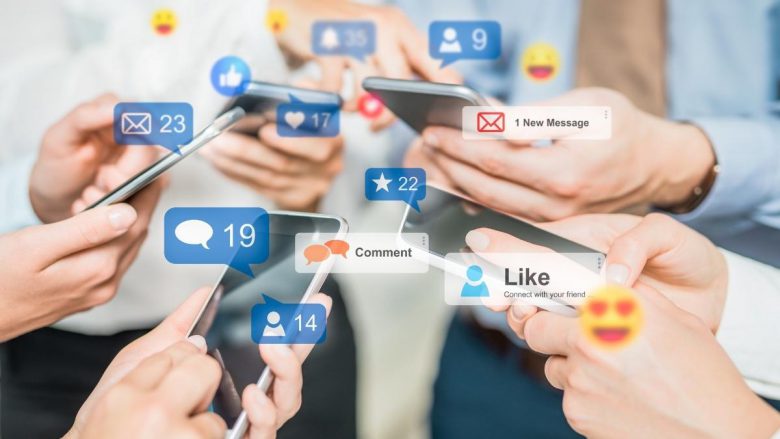
Social media has become one of the most popular forms of communication today. It is a digital platform that allows people to connect with each other online. The way that social media affects our mental health is still up for debate. Some people believe that social media can be beneficial because it provides us with a way to communicate with people from all over the world. Other people believe that social media can have a negative effect on our mental health because it can increase anxiety and stress levels.
Negative Effects
Since the advent of social media, people have been increasingly worried about its effects on their mental health. There is no question that social media can be addictive and that it can distort our perception of reality, but is it really as harmful as people say?
Although there is no doubt that social media has negative effects on our mental health, these effects are usually exaggerated. For example, a lot of people believe that social media causes anxiety and depression, but there is actually no evidence to support this claim. In fact, a study conducted by the University of Cambridge found that there was no link between social media use and mental health problems.
Similarly, some people believe that social media causes body image issues, but again, there is no evidence to support this claim.
Depression
Depression is one of the most common mental health disorders in the United States. It can affect people of any age, gender, or race. Depression is more than just feeling sad or down. It’s a serious medical condition that affects how you think, feel, and behave.
Depression can cause physical problems such as headaches, pain, and trouble sleeping. Depression can also lead to emotional problems such as feeling hopeless, helpless, or worthless. People with depression may also have problems with relationships and work.
Depression is often treated with medication, therapy, or a combination of both. There are many ways to get help for depression. If you think you may be depressed, talk to your doctor or therapist.
Anxiety
Anxiety disorders are the most common mental illness in the US, affecting 40 million adults in the US every year. That’s 18% of the population. Anxiety disorders can be crippling and often prevent people from living a full and happy life.
Social media is a huge contributor to anxiety disorders. The constant comparison to others’ highlight reels leads to feelings of inadequacy and low self-esteem. It’s easy to get wrapped up in the drama of other people’s lives and forget about our own.
The best way to deal with social media-induced anxiety is to take a break from social media altogether. Delete your accounts, or at least take a break from them for a while. Spend more time outdoors and with friends and family. Find things that make you happy and focus on those things.
Low self-esteem
Low self-esteem is a mental health condition that is characterized by negative thoughts and feelings about oneself. People who have low self-esteem often feel powerless and inadequate. They may doubt their abilities and feel unworthy of love and respect. Low self-esteem can be caused by a variety of factors, including social media.
Social media can have a negative impact on our mental health, particularly our self-esteem. Studies have shown that people who use social media extensively are more likely to suffer from low self-esteem. This is because social media can be very damaging to our self-image. We are constantly exposed to images of perfect bodies and perfect lives, which can make us feel inferior and unhappy.
The best way to deal with low self-esteem caused by social media is to limit your exposure to it.
Addiction
The article should focus on how addiction, particularly to social media, can affect our mental health.
It’s no secret that social media has become a huge part of our lives. In fact, it’s often hard to imagine life without it. But what many people don’t realize is how addiction to social media can actually affect our mental health.
Studies have shown that spending too much time on social media can lead to things like depression, anxiety, and even psychosis. This is because when we’re constantly scrolling through our feeds, we’re constantly seeing images and updates from people who seem to have perfect lives. This can make us feel bad about ourselves, which can lead to depression and anxiety.
In some cases, addiction to social media can even lead to psychotic symptoms like hallucinations and delusions.
Positive Effects
Positive Effects of Social Media on Mental Health
There is no doubt that social media has a profound impact on our mental health. However, the nature of this impact is not always clear. Some researchers argue that social media has a negative effect on our mental health, while others claim that it has a positive effect. The truth is likely somewhere in between.
On the one hand, social media can be addictive and lead to compulsive behaviour. It can also be damaging to our self-esteem and make us feel bad about ourselves. Additionally, it can be isolating and promote envy and competition among users.
On the other hand, social media can also be a great way to connect with friends and family, make new friends, and learn new things. It can also help us stay informed about current events and connect with like-minded people.
Meaningful Connections
There is no question that social media has had a profound effect on the way we communicate and share information. But what are the long-term effects of this constant connection? A growing body of research suggests that social media may be affecting our mental health in negative ways.
One recent study found that people who use social media more often are more likely to report symptoms of depression. Another study showed that Facebook can lead to envy and dissatisfaction with one’s own life. These findings suggest that social media can have a negative impact on our self-esteem and mental health.
The bottom line is this: while social media can be fun and useful, it’s important to be aware of its potential negative effects. Use caution when spending too much time on social media, and remember that it’s okay to take breaks from the screen.
Community Building
We’ve all heard the saying “it takes a village to raise a child.” But what about adults? Community building is essential to our mental health. According to research, social media affects our mental health in both positive and negative ways.
Positively, social media can help us connect with friends and family online. This can lead to stronger relationships and increased feelings of connectedness. In fact, one study showed that people who spent more time on social media felt more connected than those who spent less time on social media.
Negatively, social media can lead to feelings of isolation and loneliness. For example, people who use social media heavily may feel like they are missing out on important aspects of their friends’ lives. This can lead to feelings of envy and isolation. Additionally, online bullying can be very damaging to our mental health.
Supportive Networks
Did you know that social media affects our mental health? Studies have found that people who use social media more often are more likely to report feeling lonely, anxious, or depressed. Social media can make us feel bad about ourselves because it is constantly showing us images of people’s perfect lives. It can also be stressful to keep up with all of the news and events on social media. It is important to remember that social media is not real life. The people we see online are not always happy and they probably don’t have perfect lives. It is important to take a break from social media sometimes and focus on our own lives.
Concluding Thoughts
No one can deny that social media has drastically changed the way we communicate. It allows us to stay connected with friends and family all over the world in ways that were once impossible. However, there is a dark side to social media that many people don’t talk about. Social media can have a negative effect on our mental health.
Studies have shown that spending too much time on social media can lead to anxiety, depression, and even loneliness. When we’re constantly scrolling through our newsfeeds, we’re constantly exposed to images and posts of other people’s lives. This can make us feel like we’re not good enough or like we’re missing out. It can also cause us to compare our lives to others, which can lead to feelings of envy and dissatisfaction.
Social media can also be addictive.
Learn more from Social Media and read What Can A Social Media Virtual Assistant Do For You.


